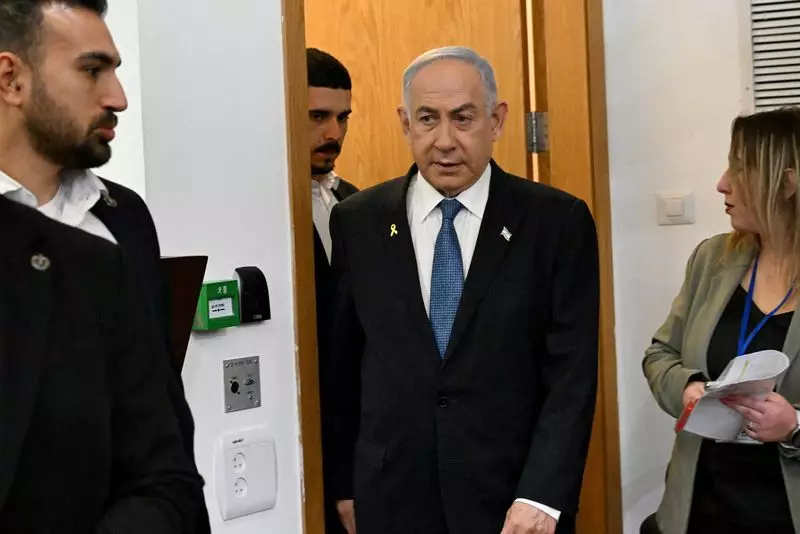Israeli Prime Minister Benjamin Netanyahu recently faced a precarious situation as he attempted to secure the passage of his government’s 2025 budget while recovering from prostate surgery. Defying his doctors’ advice, Netanyahu left his hospital bed to personally appeal to coalition partners who were threatening to disrupt the process. This determination highlights not only his commitment to his government but also the precarious nature of his political alliances, particularly with hardline factions within his coalition that expressed potential opposition to the proposed budget.
The complexity of Netanyahu’s coalition underscores a significant challenge in Israeli politics—maintaining unity among diverse, often conflicting interests. The current coalition is described as the most right-leaning in Israel’s history, making it susceptible to internal dissent. Key players, such as Itamar Ben Gvir, Israel’s public security minister, have voiced concerns over budget allocations and legislative priorities, which reveals the fractures within the coalition. For instance, Ben Gvir’s demand for increased police funding and the ultra-Orthodox parties’ resistance to military conscription for their members exemplify the hurdles Netanyahu faces in achieving consensus.
The recent narrow approval of the budget bill indicates a fragile political environment. While the bill encompasses critical tax hikes and spending cuts intended to stabilize state revenues, the opposition from coalition members raises questions about its future viability. Netanyahu’s comments calling for coalition solidarity reflect a broader concern about the stability of the current government. The threat of losing support from pivotal partners poses a significant risk; if the budget is not approved by March 31, it could trigger new elections, further complicating an already tumultuous political landscape.
The urgency behind the budget proposal cannot be separated from Israel’s economic situation, which has deteriorated since the onset of the conflict with Hamas on October 7, 2023. The economy has faced stagnation, and inflation continues to rise, exacerbating the financial burden on Israeli citizens. These economic challenges likely influenced the reactions within the coalition, prompting calls for more tailored budgetary provisions. If coalition members feel that their constituents are suffering due to inadequate funding or policies, it could lead to heightened tensions and an increased likelihood of political fractures.
As Netanyahu’s budget proposal progresses to the Knesset finance committees, potential amendments could either ease or amplify tensions within the coalition. The coming months will be telling, as the coalition must navigate significant political and economic hurdles. The pressure is on Netanyahu not just to secure the passage of this budget but to foster a sense of unity among his fractious allies. Should he fail, it may pave the way for political turmoil, underscoring the fragile balance of power that defines Israel’s current governance. With the economic situation worsening, the stakes are higher than ever for Netanyahu and his coalition, revealing the high ramifications of political maneuvering in a volatile context.

